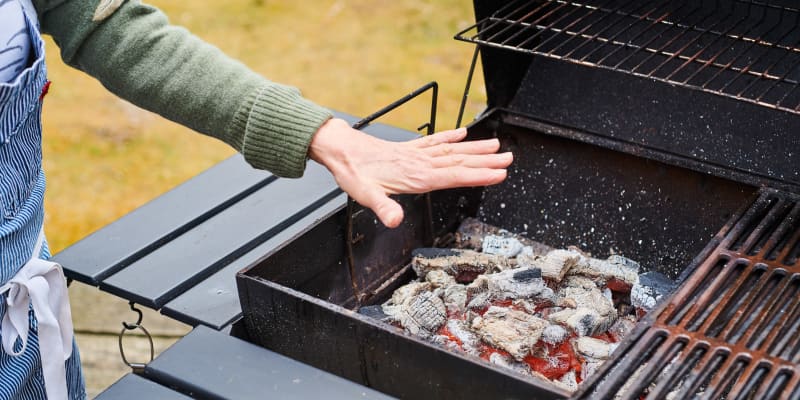Grill Grates for Thanksgiving Turkey: Elevate Your Feast
Written By James Morgan
Thanksgiving is a cherished time for family, gratitude, and of course, a delicious feast. For many barbecue enthusiasts, grilling the perfect turkey is a highlight of the day. When it comes to grilling, the choice of grill grates can significantly impact the outcome of your Thanksgiving turkey. Let's explore how the right grill grates can elevate your turkey game this holiday season.

Why Choose Grill Grates for Your Turkey?
Using grill grates for Thanksgiving turkey is more than just a cooking method; it's an art form. Grill grates offer a unique set of benefits that can transform your turkey into a succulent masterpiece. From even heat distribution to beautiful sear marks, grill grates are essential for achieving that perfect balance of crispy skin and juicy meat.
One of the primary advantages of using grill grates is their ability to create an ideal cooking surface. They distribute heat evenly, allowing your turkey to cook uniformly. This is crucial for larger birds, where uneven cooking can lead to dry patches or undercooked areas. Moreover, grill grates help in reducing flare-ups, which can char your turkey and alter its flavor.
Types of Grill Grates
When it comes to selecting grill grates, there are several materials to consider. Each type has its pros and cons, and your choice will depend on your specific needs and preferences. Some popular options include:
Cast Iron Grill Grates
Cast iron grill grates are known for their excellent heat retention and even cooking. They are perfect for achieving those classic sear marks that many barbecue enthusiasts crave. However, they require regular maintenance to prevent rust and ensure longevity. For tips on maintaining cast iron grill grates, you can check out this guide from Weber.
Stainless Steel Grill Grates
Stainless steel grill grates are a popular choice due to their durability and resistance to rust. They heat up quickly and provide a non-stick surface, making them easy to clean. If you're looking for grill grates that last longer, you might want to explore the pros and cons of different materials.
Aluminum Grill Grates
Aluminum grill grates are lightweight and offer excellent heat conductivity. They are often used in portable grills and are easy to transport. However, they may not provide the same level of searing as cast iron or stainless steel grates.
Preparing Your Grill Grates for Thanksgiving
Before you start grilling your Thanksgiving turkey, it's essential to prepare your grill grates. Proper preparation ensures that your turkey cooks evenly and tastes delicious. Here are some steps to follow:
Clean Your Grill Grates
Start by thoroughly cleaning your grill grates to remove any residue from previous cookouts. A clean surface prevents food from sticking and ensures even cooking. For detailed cleaning tips, refer to this handy guide.
Oil Your Grill Grates
Once your grill grates are clean, it's time to oil them. Oiling creates a non-stick surface and enhances the flavor of your turkey. Use a high smoke point oil, such as canola or grapeseed oil, and apply a thin layer using a brush or paper towel.
Preheat Your Grill
Preheating your grill is crucial for achieving the perfect sear on your turkey. It also ensures that your grill grates reach the optimal temperature for cooking. Allow your grill to preheat for at least 15 minutes before placing your turkey on the grates.
Grilling the Perfect Thanksgiving Turkey
Now that your grill grates are prepared, it's time to focus on grilling your Thanksgiving turkey. Here are some tips to ensure a delicious and memorable meal:
Choose the Right Turkey
Selecting the right turkey is the first step to a successful Thanksgiving feast. Consider the size of your grill and the number of guests you'll be serving. A medium-sized turkey, around 12-14 pounds, is ideal for most grills.
Season Your Turkey
Seasoning your turkey is where you can get creative. Consider using a brine or marinade to infuse your turkey with flavor. Be sure to season both the exterior and the cavity of the bird for maximum taste.
Monitor the Temperature
Use a meat thermometer to monitor the internal temperature of your turkey. This ensures that your turkey is cooked to perfection without overcooking. The ideal internal temperature for turkey is 165F (74C).
Conclusion
Grilling a Thanksgiving turkey on the right grill grates can elevate your holiday feast to new heights. By choosing the appropriate grill grates, preparing them properly, and following the grilling tips provided, you can create a memorable meal that will have your guests coming back for seconds. Whether you're a seasoned barbecue enthusiast or a novice griller, the right grill grates can make all the difference. For more grilling tips and techniques, visit Amazing Ribs for expert advice.

FAQs
What type of grill grates is best for turkey?
Cast iron grill grates are excellent for turkey due to their heat retention and ability to create sear marks. Stainless steel grates are also a good choice for their durability and non-stick properties.
How do I prevent my turkey from sticking to the grill grates?
To prevent sticking, ensure your grill grates are clean and well-oiled before placing your turkey on them. This creates a non-stick surface and enhances the flavor of your turkey.
Can I use aluminum grill grates for a Thanksgiving turkey?
While aluminum grill grates can be used, they may not provide the same level of searing as cast iron or stainless steel grates. If using aluminum, be sure to monitor the cooking process closely to achieve the desired results.



